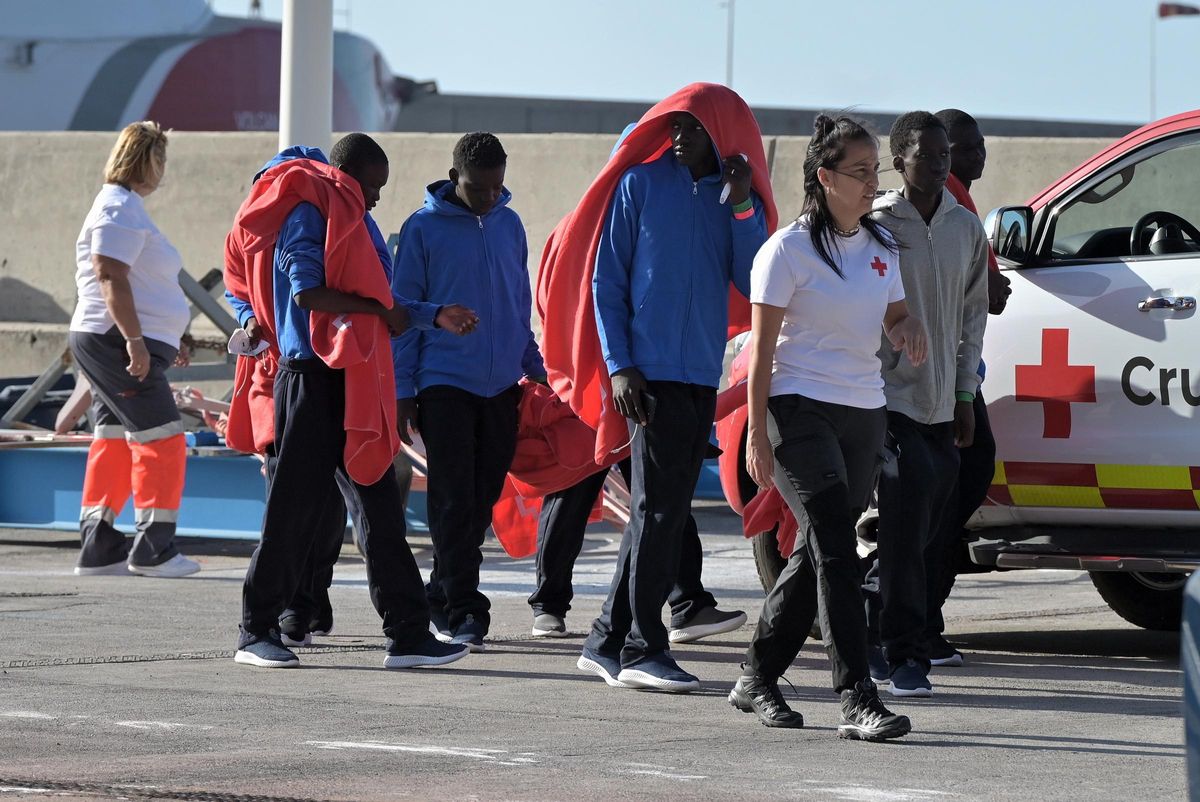Two individuals accused of acting as captains of a cayuco that arrived in Tenerife last summer have accepted a three-year prison sentence this Wednesday, admitting to committing a crime against the rights of foreign citizens.
The sentence was reached by mutual agreement, with the Prosecution stating that “the described activity was mainly aimed at alleviating the needs of Senegal and creating a better future project in Europe”.
The trial took place at the Provincial Court of Tenerife after the accused were transferred from Tenerife II, where they have been in preventive prison since the events occurred.
The convicted individuals were responsible for illegally transporting 38 Sub-Saharan individuals into Spain, four of whom were minors, taking control of the small boat used for fishing in the African country.
The cayuco departed from the coast of Senegal towards Canarias, where it was detected in its waters after five days of navigation with the engine turned off. They had to be towed to Tenerife by a patrol boat to be assisted by an NGO.
From a beach in Senegal, the accused organized the crossing in collusion with unidentified individuals, charging each passenger between 300,000 and one million West African francs (CFA), around 500 to 1,500 euros respectively on average.
Leadership and Captaincy
Once aboard the boat, they assumed the roles of leadership and captaincy of the voyage by determining the passengers’ locations, giving orders and behavioral instructions, and distributing food and drinks.
They also warned the migrants not to testify against them once they reached Spanish shores as they would be detained and convicted.
The boat was a cayuco, made of fibreglass-coated wood, grey and light blue in color, with an approximately 10-12 meters length and primarily powered by two engines, one auxiliary.
It lacked any safety measures related to fuel storage, life jackets, nautical communication means, position lights, and radar reflector, with little space to accommodate the 38 people on board.
The passengers had to be positioned on both sides, at risk of capsizing due to internal movement, and faced the dangers of collision and boarding due to the lack of lighting on a route frequented by many ships.
“However, despite this, the accused, being aware of these circumstances, took control of the helm of the vessel for the mentioned journey. All of this posing a risk to the life, health, and physical integrity of the occupants, who lacked the necessary food and drink to survive it.”

A canoe arrives in El Hierro with 37 people on board / Gelmert Finol
The Public Ministry argued that the defendants carried out navigation tasks such as managing the engines, helm, and course direction using GPS, maintaining order on the boat, issuing instructions and orders to the passengers interchangeably.
The Prosecution charged them with a crime against the rights of foreign citizens or illegal immigration, for facilitating the entry of 38 people into Spain who lacked documentation, means of livelihood, and not doing so through authorized posts. Initially, six years of imprisonment were requested for each of them, which was ultimately halved after reaching a mutual agreement.
















